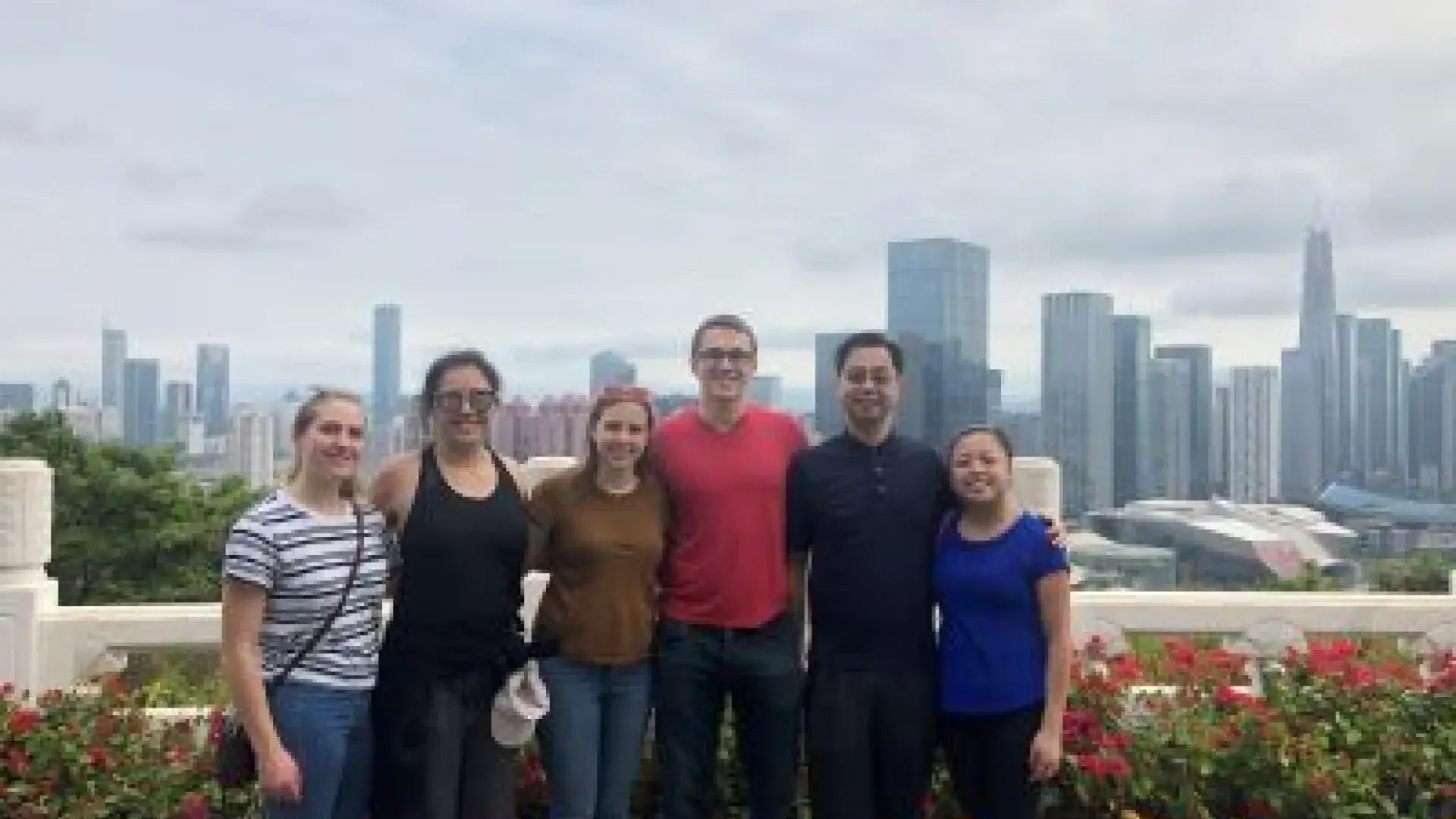
If you ask an occupational therapy or nursing student on campus about which faculty member was most instrumental in their independent research project, chances are Dr. John Wong will be among the first ones named.
An associate professor with dual appointments in the School of Nursing and Department of Occupational Therapy, Wong is the Institute’s resident statistician and research expert. Last year, he taught introductory research classes to more than 200 students in the Direct-Entry Master of Science in Nursing, Doctor of Nursing Practice, and Entry-Level Doctor of Occupational Therapy programs and co-authored eight published research papers while re-establishing an international research partnership with clinicians in China.
With a PhD in biochemistry and cell biology, Wong brings a unique expertise to the Institute, where most faculty are practicing health care professionals. After dabbling with the idea of attending medical school, and thanks to a high school biology teacher in Wong’s native Hong Kong who piqued his interest in the sciences, he decided on another path. “Biology and biochemistry research seemed like the perfect way to help people without necessarily providing direct patient care,” he said.
A Mentor for All
In addition to teaching, Wong also provides consultations in data analysis to students on their final research projects. For many, it is their first time tackling such a large undertaking on their own.
“I don’t think I would have been able to finish my advanced doctoral experience project without Dr. Wong,” says Katie Golden, OTD ’21, who currently is in the Institute’s PhD in Rehabilitation Sciences program. “Throughout the pandemic, Dr. Wong met with me virtually and ensured I had everything I needed to not only succeed but also grow from this project as an aspiring researcher myself. He’s patient, yet passionate and so committed to research at the IHP.”
This spring, Wong celebrated a much-deserved “first” when one of his students had their work published in a scholarly journal. As a first reader on her scholarly research project, Wong helped 2022 Master of Science in Nursing graduate Brittan Morris publish her work in the Brain Network and Modulation journal.
Not only was Dr. Wong's mentorship vital throughout the entirety of her scholarly process, says Morris, but he also encouraged her to reach beyond what was required for the project, present her work at the IHP’s Nursing Scholarship Day, and then pursue journal publication.
“His continuous support, guidance, passion for research, and true scientific expertise are inspiring,” said Morris. “I am so grateful to have had the opportunity to work with him.”
For Wong, helping students and faculty advance their own scholarship and push their professions forward is what motivates him. “Our students become OTs and nurses because they want to help people in a concrete ways, and research is an extension of that,” he said. “When I help students, I help the next generation of professionals. When I help faculty, I help usher in the next generation of the profession itself.”
A Partner in Change
Recently, Wong worked with Associate Professor of Nursing Eleonor Pusey-Reid, who is currently examining the representation of darker-skin tones in prelicensure nursing textbooks and who enlisted Wong’s help crunching her data.
“Dr. Wong really brought the reliability of our data to a new level,” said Dr. Pusey-Reid, noting how they worked together to quantify her findings. “He’s always willing to brainstorm new ideas and help other faculty display their research in new and creative ways.”
“I’m always honored to help my colleagues with the ground-breaking work their doing,” Wong smiled.
Moving forward, Wong is excited to delve back into the research partnerships he developed with several hospitals and clinicians in China. In 2019, Wong hosted at the IHP two Chinese clinicians from Shenzhen Baoxing Hospital and Nanfang Hospital at Southern Medical University. The clinicians observed the school’s research, clinical education, and community partnership efforts and worked with faculty in occupational therapy, nursing, and physical therapy. The following year, Wong led a group of five students on a second independent study trip to China where they delved into traditional Chinese medicine and observed how nursing and rehabilitation care are performed in the country.
The group arrived back in the U.S. just before the pandemic and this academic exchange between the institute and China has been on hold since March of 2020, but he’s hopeful that will change soon.
“My goal is to get more IHP students and faculty to China as we continue to open borders and better manage COVID-19,” says Wong. “China has a lot more patients than we do simply because of the size of its population, but they often underutilize their access to data. They provide great patient care, but don’t always conduct the best research studies. That’s where I believe I can help.”
He’s hopeful they can hone a fruitful partnership that allows him to show his partner clinicians how to better use their data while also exposing IHP students and faculty to different approaches to health care.

